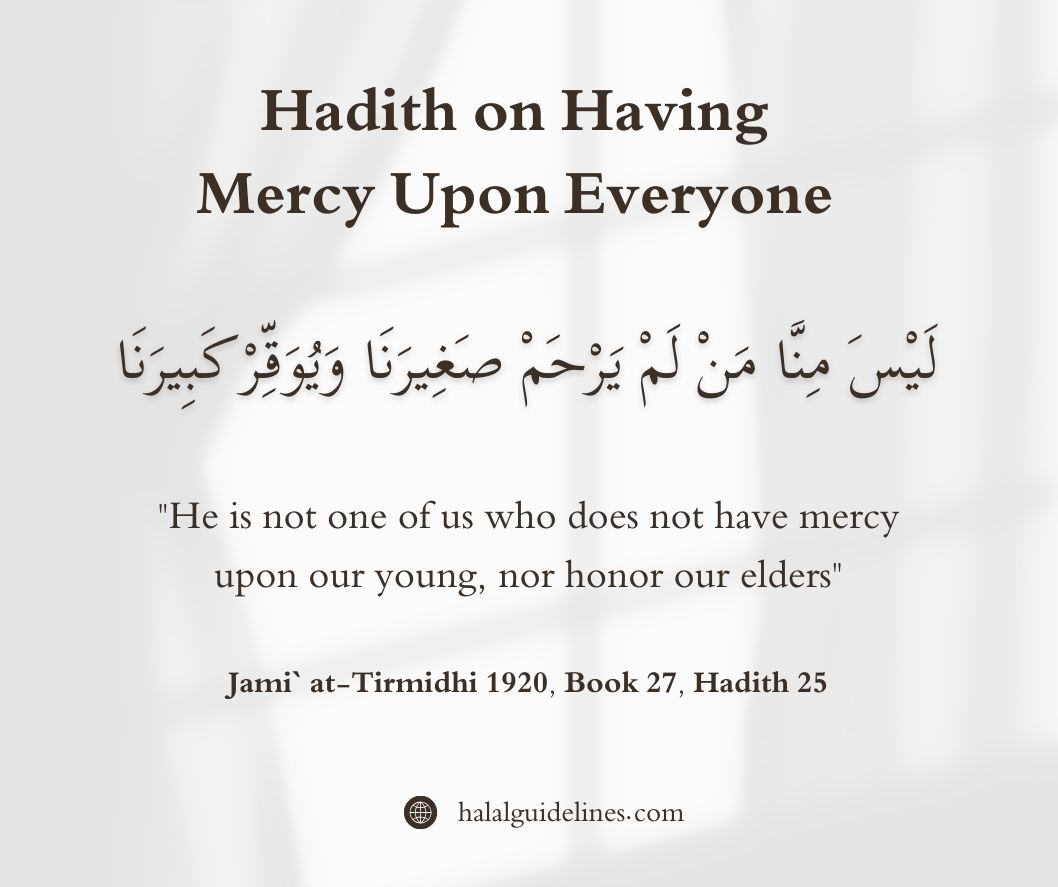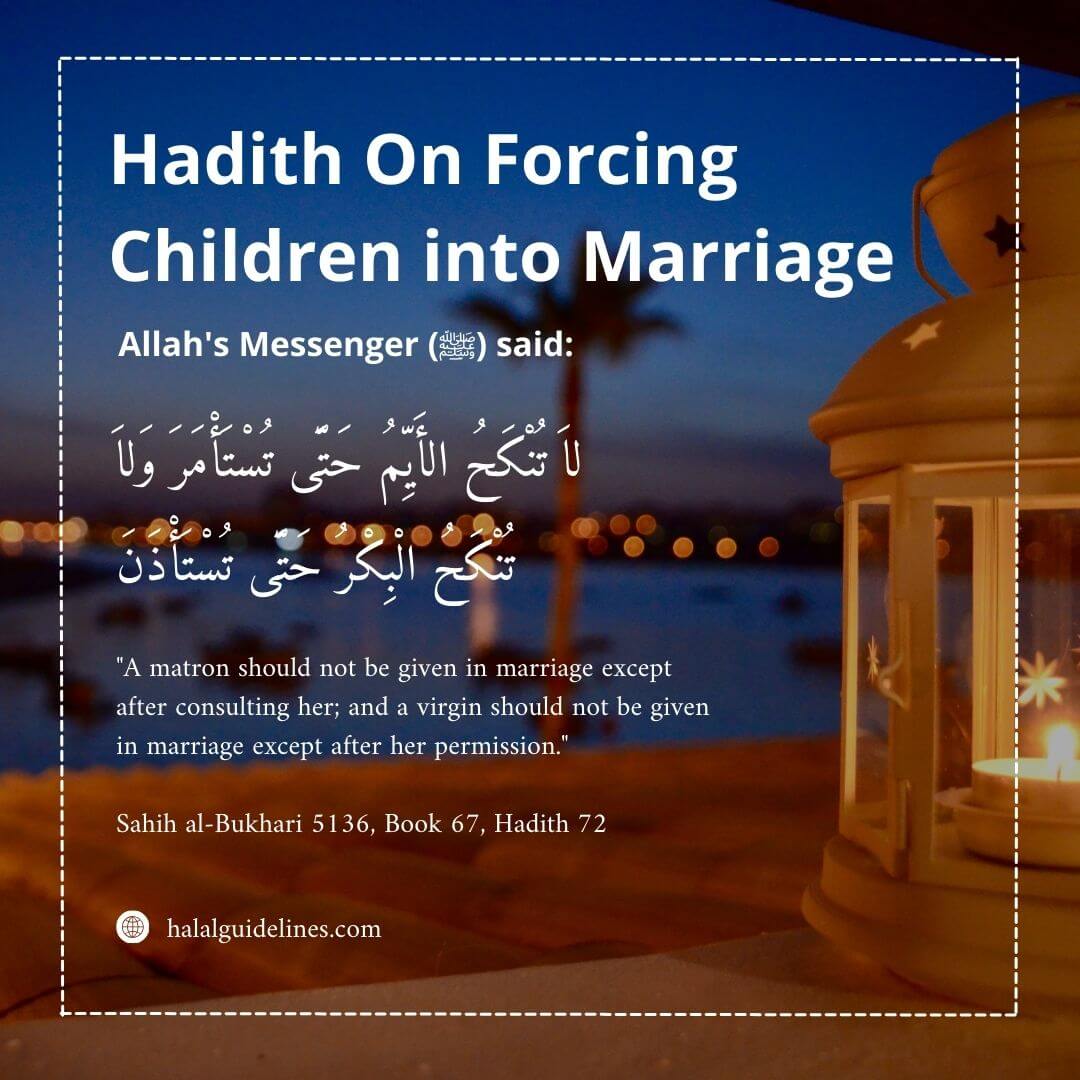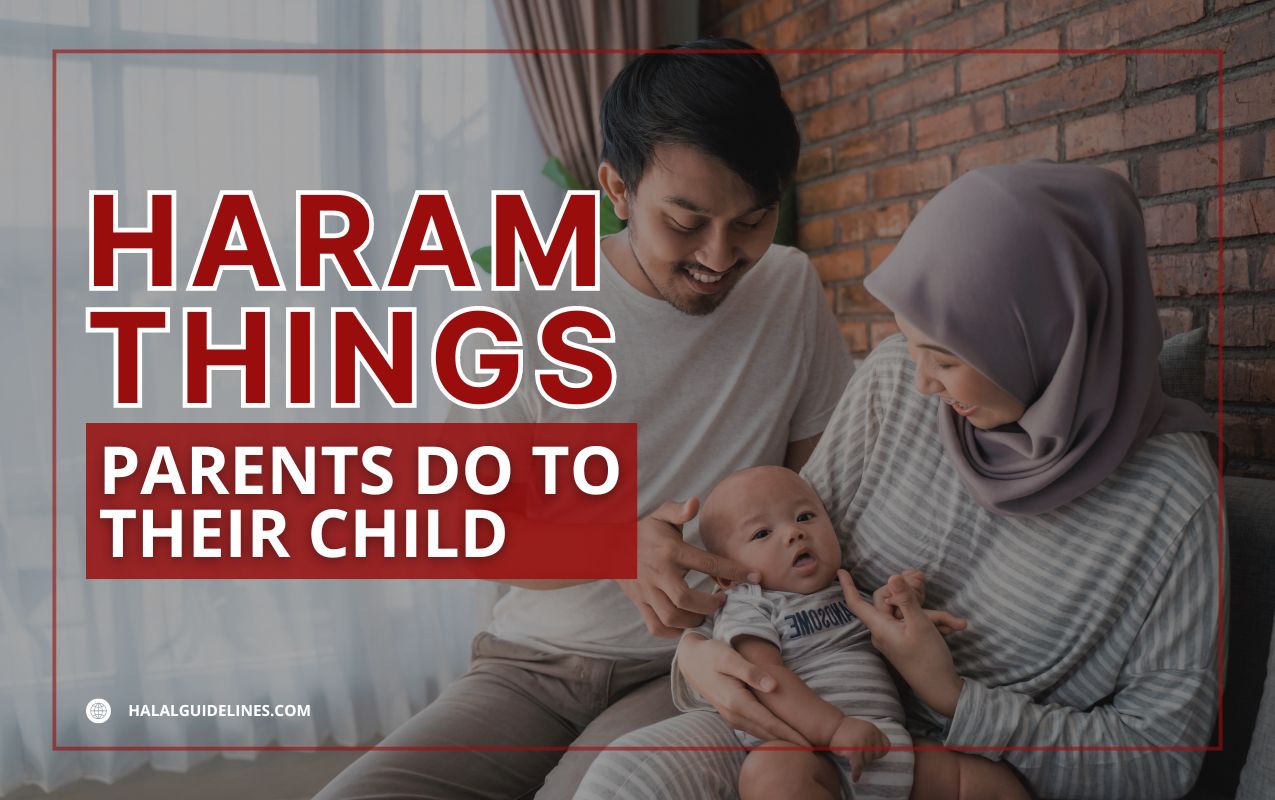Parenting is a sacred responsibility in Islam, filled with joys and challenges. As guardians and role models, Muslim parents are entrusted with the crucial task of raising their children according to Islamic principles. But, it’s important to recognize that there are boundaries even for parents.
Today, we will discuss what actions and behaviors are haram for Muslim parents in Islam, and how they can avoid these to stay true to their faith and provide the best upbringing for their children.
Here are the things that you should avoid as Muslim parents to give your child a happy and healthy life:
1. Physical Abuse

Physical abuse of any kind is strictly forbidden in Islam. This includes hitting, slapping especially on their face, beating, or any form of violent punishment towards children. The teachings of Islam emphasize compassion and gentle treatment of others, especially the young.
A profound example of this is highlighted in the following hadith:
لَيْسَ مِنَّا مَنْ لَمْ يَرْحَمْ صَغِيرَنَا وَيُوَقِّرْ كَبِيرَنَا
“He is not one of us who does not have mercy upon our young, nor honor our elders”
Full Reference: Jami` at-Tirmidhi 1920, Book 27, Hadith 25

This hadith tells the importance of treating children with mercy and kindness. It implies that using violence against children contradicts Islamic teachings and the example set by the Prophet Muhammad (peace be upon him). Parents should discipline their children with love, patience, and wisdom, never physically harming them.
2. Emotional Abuse
Emotional abuse can be as harmful and hurtful as physical abuse. It includes insulting, belittling, constantly criticizing, or using harsh words towards children. Islam encourages parents to use words of encouragement, support, and love.
Responsibility of parents to safeguard their children not only from physical harm but also from emotional and spiritual damage. Protecting children includes nurturing their self-esteem and emotional well-being through kind, supportive words and actions.
3. Neglecting Children’s Basic Needs

In Islam, parents need to take care of their children properly. Ignoring a child’s basic needs is seen as very wrong because it harms their well-being and growth. Parents have a special responsibility to make sure their kids get everything they need to be healthy and happy.
These needs include:
- Proper nutrition and food
- Sufficient shelter and clothing
- Education (both religious and worldly)
- Healthcare and medical attention
- Emotional support and love
Parents are obligated to fulfill these needs to the best of their abilities. Neglecting these responsibilities can have severe consequences for the child’s physical, emotional, and spiritual development.
4. Favoritism Among Your Childrens

Showing favoritism to one child over another is strongly discouraged in Islam. It can lead to hurt feelings, jealousy, and damage family relationships.
The Messenger of Allah said in this hadith:
اتَّقُوا اللَّهَ وَاعْدِلُوا بَيْنَ أَوْلَادِكُمْ
“Fear Allah and treat your children fairly.”
(Sahih al-Bukhari 2587, Book 51, Hadith 26)

This hadith teaches parents to treat all their children fairly and equally. Showing favoritism or comparing children can hurt their feelings and create problems in the family. Parents should love and support each child equally, while also appreciating and helping each one with their own special qualities and needs.
You can also read these articles below:
5. Forcing Children into Marriage

In Islam, forcing a child into marriage against their will is strictly forbidden. Both parties must give their free consent for a marriage to be valid according to Islamic law. Parents can offer guidance and advice, but the final decision should rest with the child.
The Prophet (S.A.W) said in this hadith,
لاَ تُنْكَحُ الأَيِّمُ حَتَّى تُسْتَأْمَرَ وَلاَ تُنْكَحُ الْبِكْرُ حَتَّى تُسْتَأْذَنَ
“A matron should not be given in marriage except after consulting her; and a virgin should not be given in marriage except after her permission.”
(Sahih al-Bukhari 5136, Book 67, Hadith 72)

This hadith establishes the requirement of consent in marriage. Forced marriages not only violate Islamic principles but can also lead to unhappy unions and psychological distress for the individuals involved.
6. Denying Inheritance Rights
In our religion, it is forbidden to deny children their inheritance rights. The Quran provides clear instructions on how inheritance should be distributed among heirs.
يُوصِيكُمُ ٱللَّهُ فِىٓ أَوْلَـٰدِكُمْ ۖ لِلذَّكَرِ مِثْلُ حَظِّ ٱلْأُنثَيَيْنِ ۚ فَإِن كُنَّ نِسَآءًۭ فَوْقَ ٱثْنَتَيْنِ فَلَهُنَّ ثُلُثَا مَا تَرَكَ ۖ وَإِن كَانَتْ وَٰحِدَةًۭ فَلَهَا ٱلنِّصْفُ ۚ وَلِأَبَوَيْهِ لِكُلِّ وَٰحِدٍۢ مِّنْهُمَا ٱلسُّدُسُ مِمَّا تَرَكَ إِن كَانَ لَهُۥ وَلَدٌۭ ۚ فَإِن لَّمْ يَكُن لَّهُۥ وَلَدٌۭ وَوَرِثَهُۥٓ أَبَوَاهُ فَلِأُمِّهِ ٱلثُّلُثُ ۚ فَإِن كَانَ لَهُۥٓ إِخْوَةٌۭ فَلِأُمِّهِ ٱلسُّدُسُ ۚ مِنۢ بَعْدِ وَصِيَّةٍۢ يُوصِى بِهَآ أَوْ دَيْنٍ ۗ ءَابَآؤُكُمْ وَأَبْنَآؤُكُمْ لَا تَدْرُونَ أَيُّهُمْ أَقْرَبُ لَكُمْ نَفْعًۭا ۚ فَرِيضَةًۭ مِّنَ ٱللَّهِ ۗ إِنَّ ٱللَّهَ كَانَ عَلِيمًا حَكِيمًۭا
Allah instructs you concerning your children: for the male, what is equal to the share of two females. But if there are [only] daughters, two or more, for them is two thirds of one’s estate. And if there is only one, for her is half. And for one’s parents, to each one of them is a sixth of his estate if he left children. But if he had no children and the parents [alone] inherit from him, then for his mother is one third. And if he had brothers [or sisters], for his mother is a sixth, after any bequest he [may have] made or debt. Your parents or your children – you know not which of them are nearest to you in benefit. [These shares are] an obligation [imposed] by Allah . Indeed, Allah is ever Knowing and Wise.
Reference: Surah An-Nisa – 11
This verse explains the basic rule of inheritance in Islam: a son’s share is twice that of a daughter’s. It is crucial for parents to follow these divine instructions and ensure that each child receives their fair share of inheritance.
7. Teaching or Encouraging un-Islamic Practices
Parents should not teach or let their children do things that go against Islamic teachings. This includes staying away from activities that are forbidden in Islam or could lead children away from the right path.
Parents need to guide their children to do what is right according to Islam and to create a home where Islamic values are followed.By encouraging these values, parents can protect their children from bad influences and help them grow up with a strong sense of right and wrong.
8. Lying to Children
Honesty is a core value in Islam, and parents play a crucial role in teaching this to their children. Kids learn by watching their parents, so when parents are always truthful, they set a strong example for their kids to follow. Being honest helps build trust and respect between parents and children, teaching them the value of honesty in their own lives. Even small lies can cause children to doubt their parents, so it’s important for parents to always tell the truth. This creates a home filled with sincerity and goodness.
9. Invading Privacy
As children grow, parents must balance privacy with Islamic teachings. Granting them personal space fosters trust, encourages open communication, and helps them develop responsibility and self-respect. This respect strengthens the parent-child relationship and supports their growing independence.
يَـٰٓأَيُّهَا ٱلَّذِينَ ءَامَنُوا۟ لَا تَدْخُلُوا۟ بُيُوتًا غَيْرَ بُيُوتِكُمْ حَتَّىٰ تَسْتَأْنِسُوا۟ وَتُسَلِّمُوا۟ عَلَىٰٓ أَهْلِهَا ۚ ذَٰلِكُمْ خَيْرٌۭ لَّكُمْ لَعَلَّكُمْ تَذَكَّرُونَ
“O believers! Do not enter any house other than your own until you have asked for permission and greeted its occupants. This is best for you, so perhaps you will be mindful.”
Surah An-Nur – 27
Although this verse from the Quran focuses on entering others’ homes, it illustrates a broader principle of respecting privacy. Parents can apply this by being mindful of their children’s need for personal space as they grow and seek to establish their own identity within the family.
10. Forcing Career Choices
While guidance is important, forcing children into specific careers against their inclinations and abilities is discouraged in Islam. Parents should guide their children toward careers that align with their abilities and interests, allowing them to excel and find satisfaction in their work.
Raising Children with Islamic Values
Parenting is a challenging but rewarding duty. As Muslim parents, our goal is to raise our children with love, kindness, and strong Islamic values. By treating our children equally and avoiding these harmful behaviors, we can create a nurturing environment for their growth. Our actions shape their understanding of Islam and their future relationships.
Let’s try our best to be calm, caring, and fair as we raise our children. May Allah guide our children on the right path of Islam and grant us the wisdom to be the best parents we can be. With sincere effort and duas, we can raise a generation of confident, compassionate, and devout Muslims, Inshallah.
More Faqs Related
Is it Haram for parents to hit their child in the face?
Yes, it is considered haram (forbidden) in Islam to hit a child in the face. Islam teaches gentle and kind treatment of children. Physical discipline, if used, should never target the face or head and should not cause harm.
Can Muslim parents yell or use harsh words when disciplining their children?
Islam discourages yelling or using harsh words with children. Parents are encouraged to use kind, patient, and respectful communication.
What does Islam say about parents neglecting their children’s education?
Neglecting a child’s education is considered wrong. Parents have a responsibility to ensure their children receive both religious and worldly education to the best of their ability.
Are parents allowed to force their children into a specific career according to Islamic teachings?
Islam encourages parents to guide their children but not force them into specific careers. Parents should consider their child’s interests and abilities, offering advice while allowing the child to make their own informed choices about their future.







